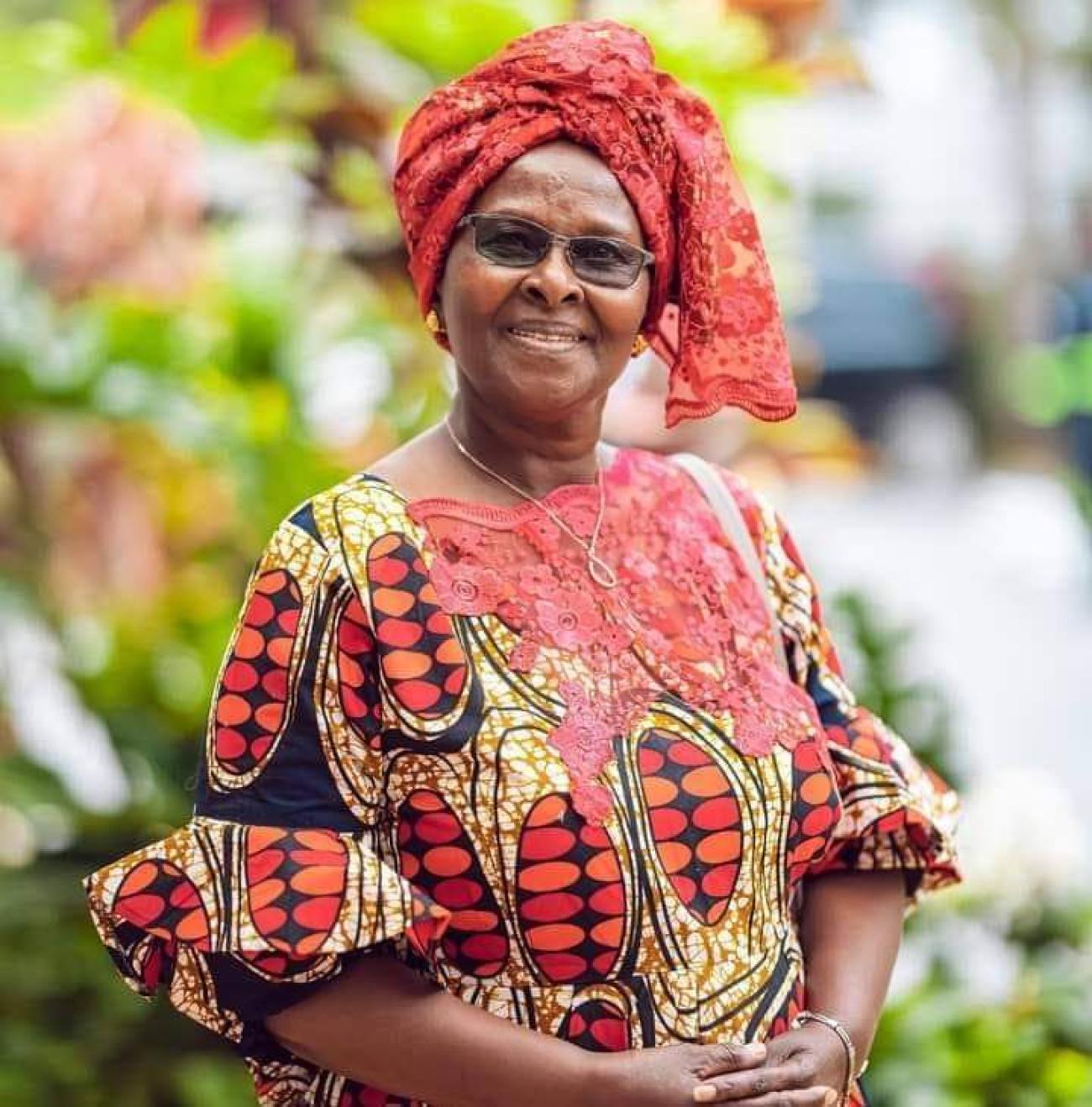THE ROLE OF AFRICAN PUBLISHERS AND BOOKSELLERS IN REALIZING THE UNITED NATIONS SUSTAINABLE DEVELOPMENT GOALS (SDGs)

Introduction
Walter Bogya, a well-known publisher in Tanzania, observed that indigenous publishing is integral to national identity and development, namely cultural, social, and economic. This is because such publishing reflects a peoples’ history and experience, belief systems, and their concomitant expressions through language, writing, and art. Books constitute crucial repositories of social memories and imaginations, containing the accumulated cultural capacity of society, of its accomplishments, challenges, and aspirations. Books, therefore, are not and cannot be a luxury, but a prerequisite for development, nationhood, and human progress.
The African Union Commission (AUC) undertook in-depth research on curriculum, literacy, and book sector development in 1999. In collaboration with the Association for the Development of Education in Africa (ADEA) the Continental Framework for National Book and Reading Policies was validated in Nairobi Kenya in 2019 and is now widely and freely available for use by member countries in formulating and implementing their National Book and Reading Policies. ADEA also produced a Tool Kit on National Book and Reading Policies along with a brochure that succinctly explains what National Book and Reading Policies are. Malawi has become the first country with the support of USAID and ADEA to formulate their National Book and Reading Policy through the Ministry of Education.
The SDG Book Club African Chapter / Publishers and Booksellers in Africa
The SDG Book Club African Chapter aims to use books as a tool to encourage children ages 6-12 to interact with the principles of the Sustainable Development Goals (SDGs) through a curated reading list of books from around the African continent related to each of the 17 SDGs in—Arabic, English, French, and Kiswahili. So far, books covering the following have been identified from participating publishers across Africa. SDG 1 No Poverty; SDG 2 Zero Hunger; SDG 3: Good Health and Well-being; SDG 4: Quality Education; SDG 5: Gender Equality; SDG 6: Clean Water and Sanitation; SDG 7: Affordable and Clean Energy and SDG 8: Decent Work and Economic Growth. Full lists can be accessed via – https://namibia.un.org/en/209341-sdg-book-club-african chapter#:~:text=The%20SDG%20Book%20Club%20African,English%2C%20French%2C%20and%20Kiswahili.
The major concern here is, books have been published and identified, but have they been made known to booksellers across Africa? What can be done to ensure that these very useful books for children are widely accessible in all African countries through bookshops? What about trade terms and trade relations between publishers and booksellers? There is need for the two continental organisations, namely APNET and PABA to begin working together like they did in the late 1990’s and early 2000’s to address some of these bottlenecks.
The Elephant in the room / Challenges in book distribution
Any book published is meant for a reader somewhere, who supposedly needs it to fulfil some purpose. Following the argument above, the mega question is: Are distribution channels readily available in Africa within and inter-country? Our experience is that it is easier to do business with countries outside Africa than to do countries with neighbouring countries. Book distribution has been a challenge that has often been discussed but without a clear answer. Yet, our position is that the UN Book Club could have afforded the best chance of opening book distribution at least for the winning titles. Given the current status in book distribution, it is our contention that the very useful books may not find their way into the hands of the intended audience. Publishers are actively involved in the project, not so the booksellers.
Reading promotion / School libraries / Public libraries and Community libraries
Along with the need to have the published books distributed, the books ought to find their ways into the wider audience via school libraries, public libraries and community libraries wherever they exist. We are aware that in most African countries, all these categories of libraries have received very little attention through government funding. There is a huge need to have the above facilities established and supported by governments. In the absence of such support noble projects like the UN Book Club Africa Chapter remain but a pipe dream for lack of reach to the intended audience. Reading is key in attaining literacy, which in turn is fundamental in acquiring education and self-fulfilment for lifelong learning.
Success / Failure of the UN Book Club Africa Chapter
To the extent that the organisers managed to bring together a dedicated team of professionals to work with African publishers who fortunately have risen to the occasion, it can be said that the project has been very successful. However, given the arguments given above regarding the reach of the titles to the booksellers and readers, we think that the project needs to rethink its strategy even as they move onto to the rest of the SDGs. We believe that there is always room for improvement and the organisers can find strategies for improving book distribution and dissemination in all African countries.
Conclusion
We alluded earlier to the efforts by the AUC and ADEA on improving the ecosystem of publishing and book trade in Africa, through National Book and Reading Policies. We think each African country needs to formulate and implement their National Book and Reading Policies if they want to achieve not only quality education and knowledge acquisition but also establish a sustainable way of knowledge creation, production, distribution, dissemination and use. Africans need to catch up with the rest of the world through books and reading if they are to assert their culture, identity and aspirations. The UN SDG Book Club Africa can be the ignition needed to bring sustainability in the African book industries.
LILY NYARIKI – CAREER PROFILE
Lily Nyariki holds a Bachelors of Arts Degree in Literature and two post- graduate Diplomas in Librarianship and Mass Communication from the University of Nairobi (Kenya) and the Leeds Metropolitan University (UK) respectively. She has worked for the public sector, NGO’s and international organizations for over 30 years.
Currently, she is based in Eldoret, Kenya. Lily just retired from Moi University in June 2020 where she worked as a librarian in charge of the university bookshops for 23 years. Previously, she worked for the Kenya National Library Services Board for 14years.
Lily is published and has two books titled Publishing and Book trade in Kenya (1997) and Perspectives on Book Development in Africa (2019) as well as several papers in peer-reviewed publications. She has a special interest in developing and nurturing the habit of reading especially among children and has, since 1997, worked at the Association for the Development of Education in Africa (ADEA) Inter Country Quality Node, Teaching and Learning (ICQN TL) as their Focal Point for Books and Learning Materials (BLM) section. She is also an Executive Committee member of International Book Agency for Education (AILE).
ABOUT THE AFRICAN PERSPECTIVES SERIES
The African Perspective Series was launched at the 2022 Nigeria International Book Fair with the first set of commissioned papers written and presented by authors of the UN SDG Book Club African Chapter. The objective of African Perspectives is to have African authors contribute to the global conversation around development challenges afflicting the African continent and to publish these important papers in the SDG Book Club blog hosted in the Stories section of the UN Namibia site. In this way, our authors’ ideas about the way forward for African development, can reach the widest possible interested audience.
Find Brief Guide of the National Book and Reading Policies NBRP's) Formulation and Implementation in Africa: https://www.adeanet.org/sites/default/files/nbrp_brochure.pdf
Written by










